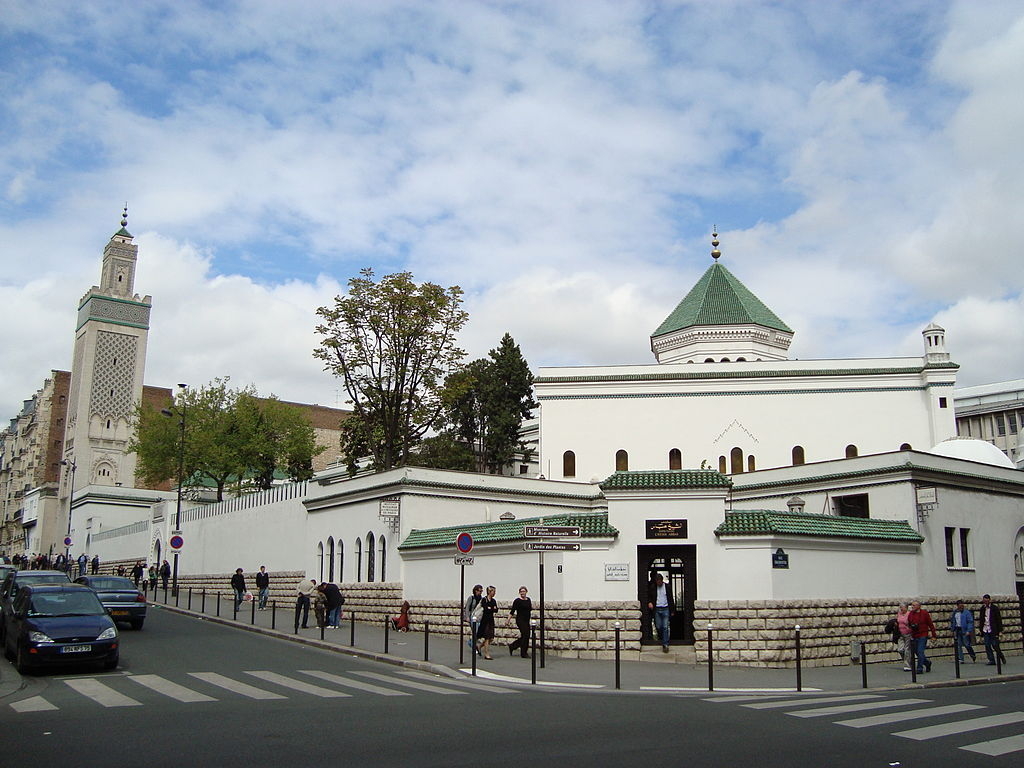The first legislative rider abolished the obligation of religious associations to declare themselves as lobbying groups -- a measure that clearly opens the way for entities such as Muslim Brotherhood to lobby Members of Parliament without leaving a trace.
Is it, however, the business of the secular State of France to organize Muslims and train "republican" imams?
The tradition in France ever since the 1905 secularism law -- one accepted by all religions except Islam -- is that religion may not to impose its rules on secular society. Now it is France that must adapt to Islam.
The big question is: Who will be heading and managing this new framework? Will it be the Muslim Brotherhood, the most powerful organization, which controls more than 2,000 mosques in France? Or a young guard of Muslim technocrats close to the president but with no ties to mosques, imams and the organized Muslim community in general?

The Grand Mosque of Paris. (Image source: LPLT/Wikimedia Commons)
In a confessional book, "A President Shouldn't Say That...", published in 2016, a few months before the 2017 French presidential election, France's then President François Hollande admitted that France has "a problem with Islam. No one doubts it," he wrote. He wrote as well that France has a problem with veiled women in public and with mass immigration. Then he added: "How can one avoid a partition? Because that is still what is happening: a partition".
The "partition" about which Hollande was talking was the partition of France -- one part for Muslims and another for non-Muslims.



